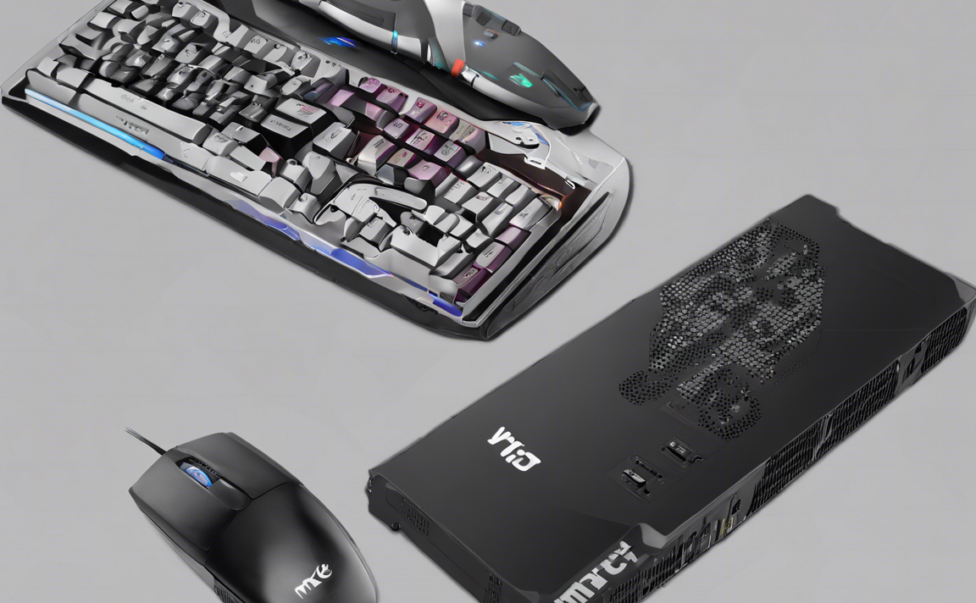Mic vs PC: Choosing the Right Equipment for Audio Recording
With the rise of podcasting, voice-overs, music production, and other audio-related activities, it’s essential to have the right equipment for capturing high-quality sound. Among the most crucial decisions to make is choosing between a microphone (mic) and a personal computer (PC) for your audio recording needs. Both have their unique benefits and drawbacks, so understanding the differences between them is key to making an informed decision for your specific use case. In this comprehensive guide, we will delve into the nuances of each option to help you choose the right equipment for your audio recording endeavors.
Microphone (Mic) for Audio Recording
When it comes to capturing pristine audio quality, a microphone is often the go-to choice for professionals in various industries. Here are some key points to consider when opting for a microphone for audio recording:
Types of Microphones:
-
Condenser Microphones: These are highly sensitive and offer a broader frequency response, making them ideal for capturing vocals and acoustic instruments with intricate details.
-
Dynamic Microphones: Known for their durability and ability to handle high sound pressure levels, dynamic microphones are perfect for recording loud sound sources like drums and guitar amplifiers.
-
Ribbon Microphones: These vintage-style microphones are celebrated for their warm and smooth sound reproduction, making them popular for recording strings and brass instruments.
Advantages of Using a Microphone:
-
Superior Sound Quality: Microphones are designed to capture sound with exceptional clarity and fidelity, making them the preferred choice for professional audio recording.
-
Versatility: With a wide range of microphone types available, you can choose one that best suits your recording needs, whether it’s vocals, instruments, or field recordings.
-
Control Over Sound: Microphones provide more control over the recording process, allowing you to adjust mic placement, polar patterns, and other settings to achieve the desired sound.
Personal Computer (PC) for Audio Recording
While a microphone is essential for capturing sound, a personal computer plays a crucial role in processing, editing, and storing audio recordings. Here’s why a PC is a valuable asset for audio recording:
Software Compatibility:
- Digital Audio Workstations (DAWs): PCs are compatible with a wide range of DAW software, such as Pro Tools, Logic Pro, and Ableton Live, which are essential for editing and mixing audio recordings.
Processing Power:
-
Multitrack Recording: PCs offer the processing power needed for multitrack recording and editing, allowing you to work on complex audio projects seamlessly.
-
Plug-in Support: With a PC, you can install and run various audio plug-ins and virtual instruments to enhance your recordings and productions.
Storage and Backup:
- File Management: PCs provide ample storage space for storing audio files and projects, as well as the ability to backup data to prevent loss of valuable recordings.
Mic vs. PC: Which One Should You Choose?
When it comes to audio recording, the choice between a microphone and a personal computer is not an either-or decision but a complementary one. A high-quality microphone is crucial for capturing excellent sound quality, while a powerful PC is essential for processing, editing, and storing those recordings. Here are some key considerations to keep in mind when choosing between a mic and a PC for audio recording:
-
Budget: If you’re on a tight budget, investing in a good microphone should be your priority, as it directly impacts the quality of your recordings. You can always upgrade your PC or add external processing power later.
-
Recording Environment: Consider the acoustic properties of your recording space. A quality microphone can help capture sound accurately, while a PC can assist in post-production to clean up any unwanted noise.
-
Portability: If you need to record on the go or in different locations, a portable microphone paired with a laptop can be a versatile solution. Ensure your PC has the necessary processing power for recording on location.
-
Workflow: Think about your workflow and how seamlessly a microphone and PC can integrate into your recording process. Choose equipment that enhances your productivity and creativity.
FAQs (Frequently Asked Questions)
-
Q: Can I use a USB microphone with my PC for audio recording?
A: Yes, USB microphones are plug-and-play devices that can be easily connected to your PC for recording purposes. -
Q: Do I need an audio interface for connecting a microphone to my PC?
A: While some microphones can be connected directly via USB, using an audio interface can provide better sound quality and more control over the recording process. -
Q: What factors should I consider when choosing a microphone for vocal recording?
A: Key factors to consider include microphone type (condenser or dynamic), polar pattern, frequency response, and intended use (e.g., singing, podcasting). -
Q: How much processing power does my PC need for audio recording and editing?
A: The processing power required depends on the complexity of your projects. For basic recording and editing, a mid-range PC should suffice, while more intensive tasks may require a higher-end system. -
Q: Can I upgrade my microphone or PC equipment in the future?
A: Yes, both microphones and PCs can be upgraded or expanded to meet evolving audio recording needs. Consider factors like compatibility and budget when planning upgrades.
In conclusion, the choice between a microphone and a personal computer for audio recording ultimately depends on your specific needs and workflow. By understanding the strengths of each option and how they complement each other, you can create a setup that allows you to capture, process, and produce high-quality audio recordings effectively. Whether you prioritize sound quality, processing power, or versatility, striking the right balance between a microphone and a PC is key to achieving professional results in your audio projects.

